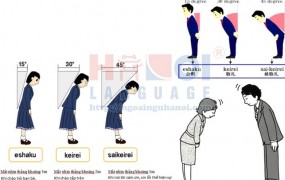Japan
LINK
VIETNAM INTERNATIONAL WORKING IN JAPAN: THINGS YOU NEED TO KNOW
Under the terms of the Memorandum of Understanding between the two governments, Vietnam began sending interns to work in Japan under the Japanese Program to accept international interns in 1992. Since the program's inception till now, the number of Vietnamese trainees working in Japan has risen year after year.
Vietnamese interns are highly valued by the director, the management of the Japanese-receiving firm, for their diligence, hard effort, rapid job absorption, and a cooperative attitude at work. It can be stated that the cooperation program for sending and receiving Vietnamese trainees to Japan has shown great results, providing practical advantages to the participants. This collaboration in human resource training and use has not only helped to boost human resource training in Vietnam, but has also supplemented Japan's human resource shortfall. During the internship, the intern's expertise and industrial style increase dramatically, allowing him or her to take on more demanding and sophisticated work when they return home. Many interns have effectively used their acquired experiences to enhance skills and economic development after returning home; many interns have become key personnel of the organization, particularly a Japanese-invested enterprise in Vietnam. There have been trainees who have gone on to become directors and managers in the firm.
However, there is still a situation in which Vietnamese interns lack the essential grasp of Japanese culture and living and struggle to adjust.
Here are some things Vietnamese interns in Japan should know in order to adapt fast while avoiding misunderstandings and blunders throughout their time living and working in Japan.
* Things to know for Vietnamese interns going to work in Japan:
Japanese complaints - trainees should be aware of:
1. Failure to meet deadlines, failure to maintain promises
2. Or make excuses for doing wrong, being late, not admitting responsibility, or acknowledging fault but blaming others.
3. Bring outside shoes into the home.
4. When eating and drinking, frequently trash the dining table and throw food on the floor.
5. Use the kitchen in an unsanitary manner, dumping everything into the sewage pipe.
6. Failure to follow the rubbish disposal requirements in the region.
7. Throwing cigarette butts, chewing gum, instant noodles, and other items out the window.
8. When drying clothing, do not wring them out and allow the water to run down to disturb others walking below.
9. Overcrowding at night, causing noise and upsetting neighbors.
10. In the store, touch the things, beg, and bargain
11. Even if there are ashtrays in restaurants and other areas, they are still placed on the floor.
12. Spitting or spitting up mucus in public and at home.
13. Make no appointment or call before coming to other people's residences to play, at any time of day or night.
14. Causing an accident, but perhaps because he is unfamiliar with the insurance system, he insists on being right, prolonging the settlement process.
15. Using other people's property without their permission.
So, what should be done to avoid being complained about as above?
Trainees must comprehend the following essential elements of Japanese culture:
Culture of greeting:
The Japanese place a high value on welcomes, and regardless of where, when, or to whom they greet, they are always courteous and serious. There are norms and rituals in traditional Japanese communication that everyone must observe depending on their social standing and social ties. People of low socioeconomic position and children salute first, bending their back and head to meet; the lower the bow, the more respect and civility offered to the person being met.
- Time compliance:
In everyday life, the Japanese pay close attention to the start time, never being late for work, meetings, classes, or even parties. Furthermore, while visiting or establishing an appointment to meet someone, it is vital to contact ahead of time to request permission to visit and to be on time. Time is important to the Japanese because they do not want others to be upset by one person's late arrival. Please come at least 10 minutes before your appointment time, and no later than 15-30 minutes before business hours. If the delay cannot be prevented, the intern must notify the company's representative or the appointment person, request permission to be late, and explicitly express the cause for the delay.
- Comply with Japanese legal requirements:
In addition to following the rules of the internship site, trainees must also follow the rules of Japanese law. Fighting, causing bodily harm to others, stealing, and other behaviors considered to contravene Japanese criminal law are strictly prohibited.
- Comply with Japanese legal requirements:
In addition to following the rules of the internship site, trainees must also follow the rules of Japanese law. Fighting, causing bodily harm to others, stealing, and other behaviors considered to contravene Japanese criminal law are strictly prohibited.
The following offenses are defined in Japanese criminal law:
- Theft is a crime:
A person who steals another person's property is considered a thief and will be sentenced to less than ten years in prison (Clause 1, Article 235 of the Japanese Penal Code).
- Robbery preparation crime:
Those who plan to steal another person's property will be sentenced to fewer than two years in jail (Article 237 of the Japanese Penal Code).
- Robbery is a crime:
Persons who perform coercive activities or use violence to take other people's property are deemed robbers and are punished to more than 5 years in jail (Clause 1, Article 236 of the HSNB Code).
- Committing robbery with bodily harm and murder:
Those who commit robbery and cause bodily harm to others will face jail sentences ranging from 7 years to life. If the victim dies, he or she will be sentenced to life in prison or death (Article 240 of the HSNB Code).
- Culture in public places:
+ Maintain order:
Modern Japanese society has an important foundation of individualism. Therefore, in life it is taboo to influence and invade the privacy of others. Please remember that you can do whatever you want in your own free space, but in public, you must respect the existing rules. And one of the first rules of conduct that needs to be learned when coming to Japan is to keep order, not to speak loudly or make noise to disturb people around.
When using the escalator:
The trainees note that in Japan, there is a rule when using the escalator that the person is on the left side, and the right side is for people going up/down (Osaka is the opposite, the person is on the right side, and the right side is on the right side. person going up/down on the left side). In addition, it is also important to note that do not gather at the two ends of the escalator, it will obstruct the passage of people around and when crowded, you need to line up with the flow of people to take turns up the escalator.
When using the elevator:
In public places such as train stations, elevators are only for the elderly, children, and people with mobility difficulties. Everyone else uses the stairs or escalators. When waiting for the elevator, line up in order and stand aside to make room for people to come out from the elevator. Wait for everyone to leave before starting to enter, absolutely avoiding the situation of jostling and jostling.
When traveling by train:
To Japan, the most popular public transport is the train. In addition to complying with the culture of queuing in public places, interns should note the following points:
. Wait for the train after the safety line has been drawn at the station.
. When the train arrives, stand aside to create a path for people to get off the train first and then step on the train.
. Most trains in Japan have priority areas (for the elderly, pregnant women, children ...) so it is important not to sit in this area.
. Do not make phone calls or talk loudly while on the train because it will disturb those around you.
. Do not eat or drink on the train, if you are too hungry, just eat something light, avoid unhygienic spills or dishes with an unpleasant smell.
When riding a bicycle:
Bicycles are also one of the most popular means of transportation in Japan. Many trainees after coming to Japan use bicycles to move from their place of residence to the company. In Japan, pedestrians will go on the right, vehicles and vehicles will go on the left, completely opposite to the travel habits of Vietnamese people, so trainees should be careful when riding a bicycle. Observe and observe the following to avoid accidents.
. Look closely at traffic lights, especially when turning right.
Bicycles are allowed to ride on the sidewalk, on the left side of the road. However, pedestrians have priority over bicycles, so they need to give way to pedestrians.
.It is not allowed to pass people when riding a bicycle.
.When there are more than one biker, remember to ride in a row. Don't talk to your friends while riding your bike as it can be distracting and lead to an accident.
+ Food culture and courtesy
. When eating, do not leave leftovers on the table or throw them on the floor.
. Leftover food is left in an empty corner of the plate, absolutely do not throw it indiscriminately. Do not leave the dining table dirty, clean after eating.
. Do not use the chopsticks you are using to pick up food for others.
. Like in Vietnam, when eating rice, you should hold the rice bowl in your hand, not put it on the table and then lower your head to eat.
. In buffet restaurants, eat as much as you want. Don't take too much and then leave excess, it's very bad in Japan, you can even be fined.
. In contrast to Vietnam, in Japan, when eating vermicelli, noodles, and vermicelli dishes that make a "falling" sound, it is not considered impolite. On the contrary, people think that the sound of "collapse" is an expression of appetite.
Trash culture:
Japanese people have the habit of always carrying a small plastic bag to store garbage, not throwing garbage on the street. Therefore, the street is always clean even though there are very few trash cans. In addition, in Japan to facilitate the treatment, reuse and recycling of garbage, all places have regulations on how to separate garbage in that locality and Japanese people always strictly follow these regulations. that determination. The regulations in each locality are different, so interns living and working in any area need to follow the regulations in that area. When disposing of garbage in public places, you should also pay attention to see the icon above the trash can or look at the garbage that is already being thrown in the bin to know how to dispose of it according to the classification regulations.
* Other things to note
. In public places in Japan, there are umbrellas, slippers... that can be used freely. Because it is an object that does not have an owner, some trainees arbitrarily bring it home to make their own. That would become theft. There have been many cases of trainees using bicycles arbitrarily at the train station or outside the shopping mall... In Japan, even if it's an object that has no owner, is abandoned, or picks mushrooms and bamboo shoots. bamboo in the forest or picking chestnuts in someone else's yard without permission is considered theft. Only use items that you yourself have purchased and paid for or that have been received directly from others.
. Do not ask the age of the person you are talking to.
. Do not point fingers at others.
. Do not touch the person you are talking to, even when joking as well as when angry or arguing.
. No noise on holidays and evenings.
. Do not gather and chat at night.
. Do not talk loudly, sing karaoke in the evening.
. Maintain the hygiene of the place of residence, the workplace, the environment and participate in the cleaning of public places.
.When you do not understand or are unclear about any manners or rules, you must definitely ask.
Above are some things interns need to keep in mind in order to be able to understand, integrate and adapt to the living and working environment in Japan. It can be seen that Japan is a country that respects the law and has a lot of rules in daily life.
Therefore, in addition to focusing on Japanese language training and explaining in detail about jobs, contracts as well as regulations of the technical internship program in Japan, the work of fostering necessary knowledge about culture, Japan's country and people for interns before coming to work is very important and should be paid special attention by dispatching companies.
In addition, the interns themselves also need to raise their awareness, actively learn about the culture and life in the places where they work and live during the technical internship in Japan so that they can quickly adapt to the new environment, avoid making unnecessary mistakes.
Le Thi Quy Huong
(Department of Overseas Labor Management)






cherry-blossom-season-285x180.jpg)

